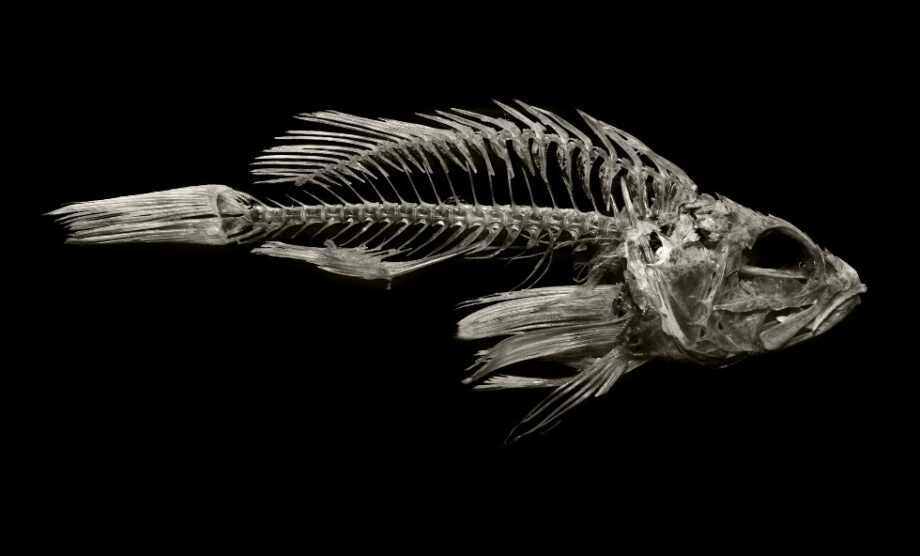Eight centimeters might not sound like much, but that's the size of the placoderm (it's a fish) credited with being the earliest vertebrate animal to engage in penetrative sex. The old in-out-in-out is believed to have originated in Scotland. Thanks, Scotland! Even better, the name of this prehistoric giggity-fish is, and I am not kidding, Microbrachius dicki. C'mon science, you've got to be messing with us.
Placoderms are not strangers to being first at something. They're also the first known animals to have jaws that open and close. Could that mean that they were also into oral sex? Probably not, since non-procreative sex-acts are biologically prohibitive. Rather than spawning like many fish do even today, Microbrachius dicki mated using an early form of the penis called a "clasper." Some modern fish, including many sharks, still mate via claspers. Females, which are NOT called Microbrachius Vuvli, had small, paired bones that locked the male organ in place during copulation. I guess that's one way to prevent coitus interruptus.
Scientists believe placoderms were apex predators in their day. This fish family ruled existing water sources for over seventy million years before being largely killed off in a mass extinction event that still hasn't been adequately explained. Placoderms are an important species from an evolutionary standpoint. They're thought to be the origin of paired limbs and eyes, as well as teeth, jaws, and now—penetrative sex. It may even be where we get the expression "There's plenty of fish in the sea." Or not.
Professor John Long of Flinders University, AU has speculated that these placoderms physiology prevented them from engaging in both missionary and doggy-style" positions. Instead, Microbrachius dicki engaged in side-by-side intercourse in what Professor Long calls "square-dance style." This recent development doesn't actually come from new findings, but rather, from a reexamination of old ones. Many placoderm fossils exist. However, nobody noticed the genitalia of them until more recently. I guess we can assume they were not particularly well-endowed. The fish, I mean, not the scientists.
For comment, I spoke with Breana Simmons, Associate Professor of Biology at East Georgia State College, who was not involved in this study. She remarked, "For scientists, this is a fantastic piece of evidence that will fuel further hypothesis creation and lead to a greater understanding of evolution and sexual reproduction in vertebrates. As for non-scientists, who wouldn't be interested in learning about ancient fish sex? …it might even get more people into paleontology!"
Fish Sticks and Fish Dicks
Do humans everywhere owe Scotland a debt for setting our feet on the path of the giggity we enjoy today? Probably, although I don't know that I've ever done it in the style of a square-dance. It's fun to know that Scottish fish are responsible for the advent of sex as we know it. The next time someone asks you the South-Park-inspired question: Do you like fishsticks? (Get it? Because it sounds like Fish Dicks!) You can answer with a resounding YES!
In case anyone isn't familiar, here's the South Park joke to which I refer:


















